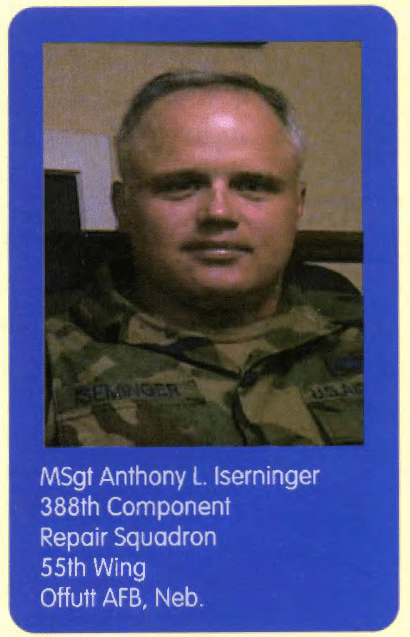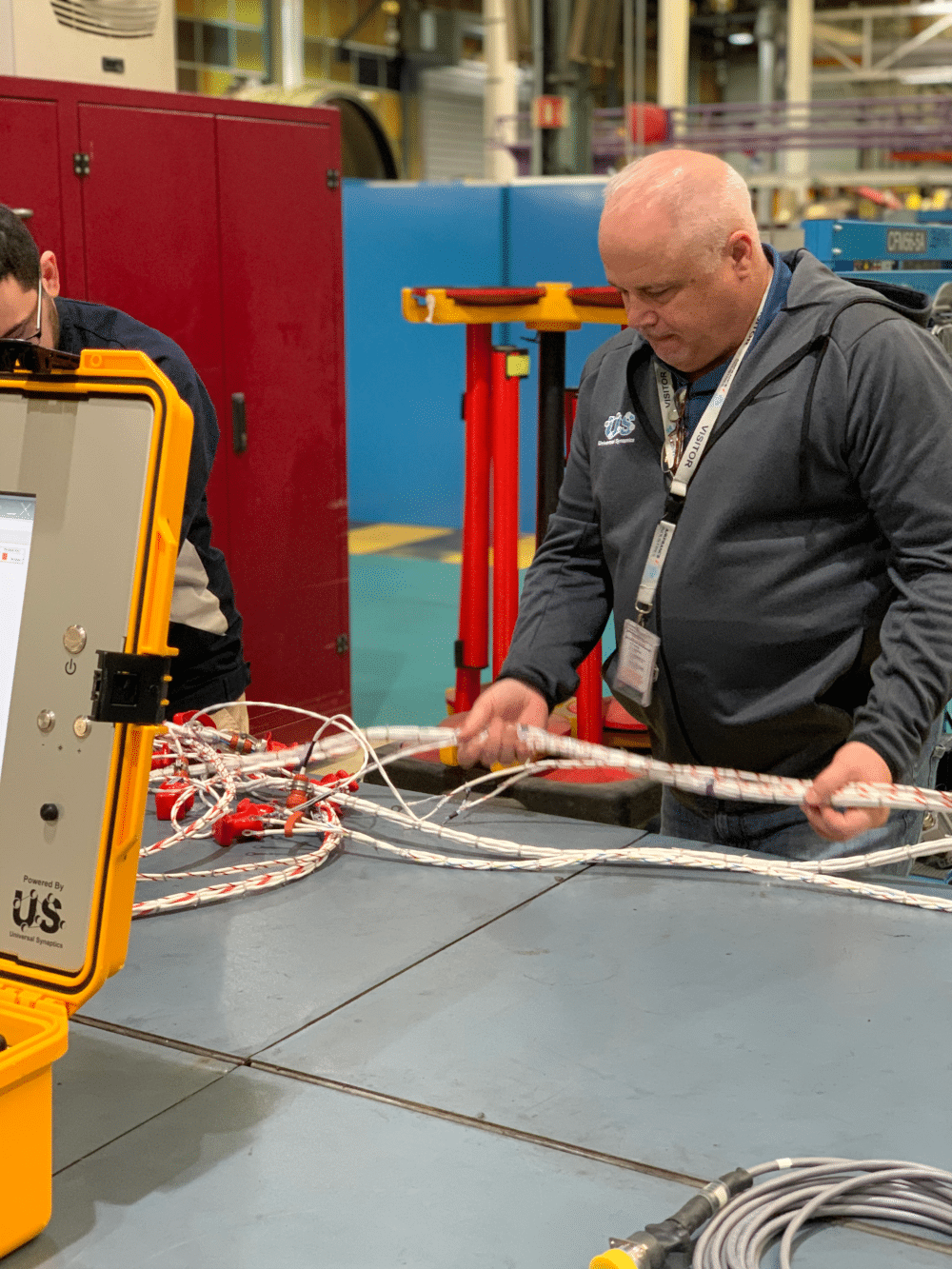2002 Flightline Safety Award of Distinction – MSgt Anthony L. Iseminger
The August 2002 edition of The Combat Edge, Air Combat Command’s quarterly safety magazine published to educate, inform and entertain the command since June 1992, highlights MSgt Anthony L. Iseminger being awarded the Flightline Safety Award of Distinction. The article states:
An F-16 landed with engine faults indicating a high delta T-4B (turbine temperature). The fighter squadron engine technicians initiated the troubleshooting tree and placed the aircraft and engine on a watch status for five flights. MSgt Iseminger performed a follow-up review of these corrective actions and discovered that a borescope of the combustor had not been accomplished as the technical data directs. MSgt Iseminger immediately grounded the aircraft, which had just deployed in preparation for an off-station aerial demonstration, and directed the required inspection. The engine combustor was found to have severe heat distress with a 5- to 6-inch open crack. This meant the engine was in the beginning stages of a severe burn-through condition. Had MSgt Iseminger not took action to ground his aircraft and directed follow-on maintenance, this condition may have had catastrophic results. If gone undetected for just one more flight, a jet engine, aircraft, and aircrew might have been destroyed and lost during an air show.
In discussing these events, Iseminger recently elaborated, stating “there was significant resistance to adopting a new technology tool for maintenance records and many people were refusing to utilize this new capability. When the downloads arrived from the dayshift line, I utilized the new system, uploading the engine data, and analyzed the trends. The data then indicated and provided information that the engine was at a critical stage and needed to have advanced troubleshooting performed before it could fly again.”
Iseminger, as the Engine Training & Diagnostic Advisor to the Logistics and Operations Group Commander, then proceeded to make the call to the 421st Fighter Squadron at Hill AFB to ground the F-16 aircraft until the borescope could be completed. MSgt Iseminger then began to receive numerous phone calls from the Mx chain of command questioning his authority to ground the aircraft. Tony stood his ground and received great support from his Mx chain of command. The jet had already left for Luke AFB to support the off-station demo. As soon as the aircraft landed at Luke, the notification of grounding led to additional phone calls questioning Iseminger’s decision and his authority. Iseminger then contacted the Luke AFB Engine Shop and set up the borescope inspection. The maintainer begrudgingly stated “let’s hurry up and complete this borescope so that we can get on with the airshow.” The results then vindicated MSgt Iseminger’s actions. Tony showed unwavering leadership in the face of extreme criticism and pressure from all stakeholders involved who did not trust his decision nor have the confidence, experience, or desire to understand the benefits of a new technology.

Source: The Combat Edge, August 2002
“I like fixing things and the challenges of making it work properly. I take a lot of pride in that. I love troubleshooting issues to make a component, engine, or harness warfighter ready. This makes the overall weapon system more reliable. I take pride in knowing that I’ve fixed it and it is safe to complete it’s mission.”

Intermittent Fault Detection Subject Matter Expert (SME) – Tony Iseminger, Technical Director
Since 2008, Tony has continued leading artisans and technicians within the United States Department of Defense to better understand the intermittence failure mode and educate on troubleshooting techniques and maintenance processes to leverage IFD technology. Tony’s passion to solve real issues to root cause while never compromising his integrity and desire to improve readiness of aircraft, has led him to train and educate hundreds of maintainers on the importance of a strong understanding of what causes intermittent faults and how to detect and isolate these faults.
As the Technical Director for Universal Synaptics, Tony leads the Technical Support group, Training division, and IFD delivery team, while also providing IFD advice to technicians across the globe to truly move the readiness needle. Tony’s mission focused support of the warfighter and maintainers grows each and every day since he joined the Air Force in 1981. Tony continues to improve readiness through intermittent fault remediation on the F-16, C-130, F/A-18, V-22, EA-18G, P-8, C-5, UH-60, AH-64, etc., as well as many other commercial aircraft.